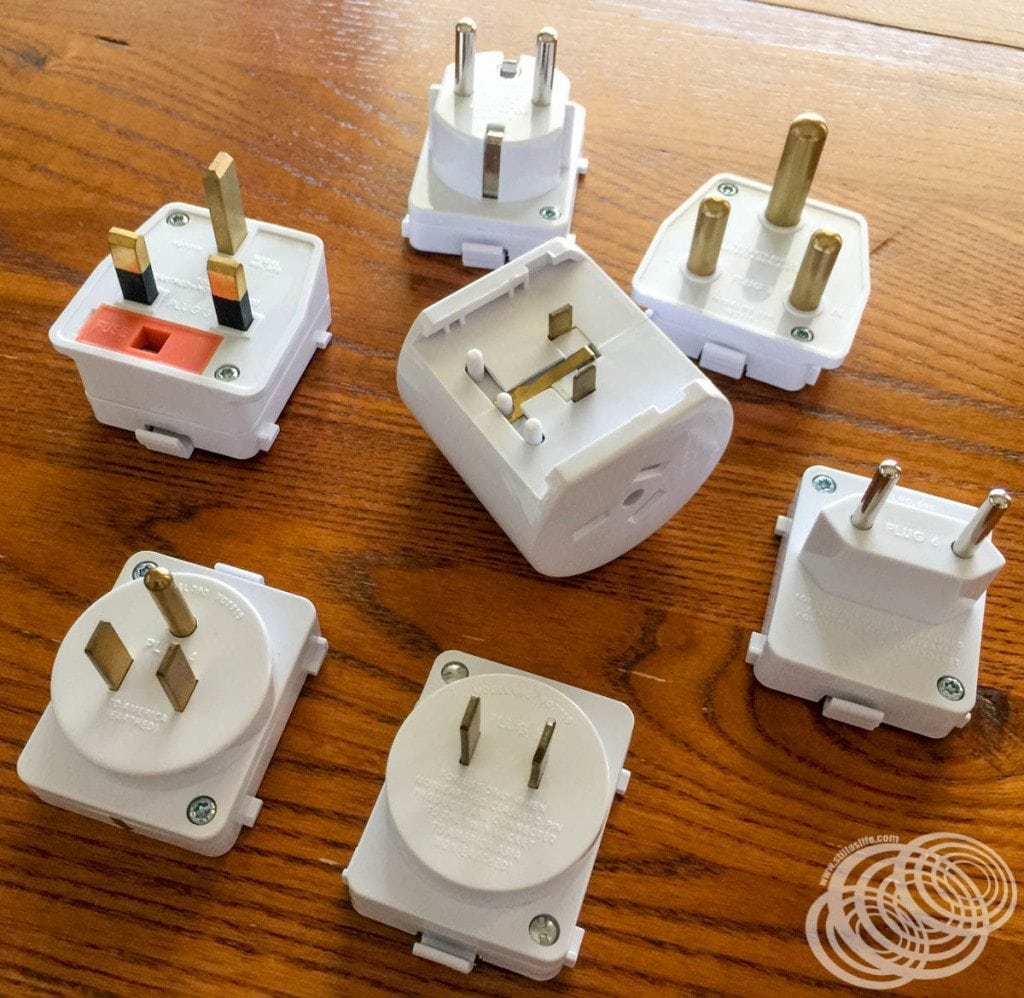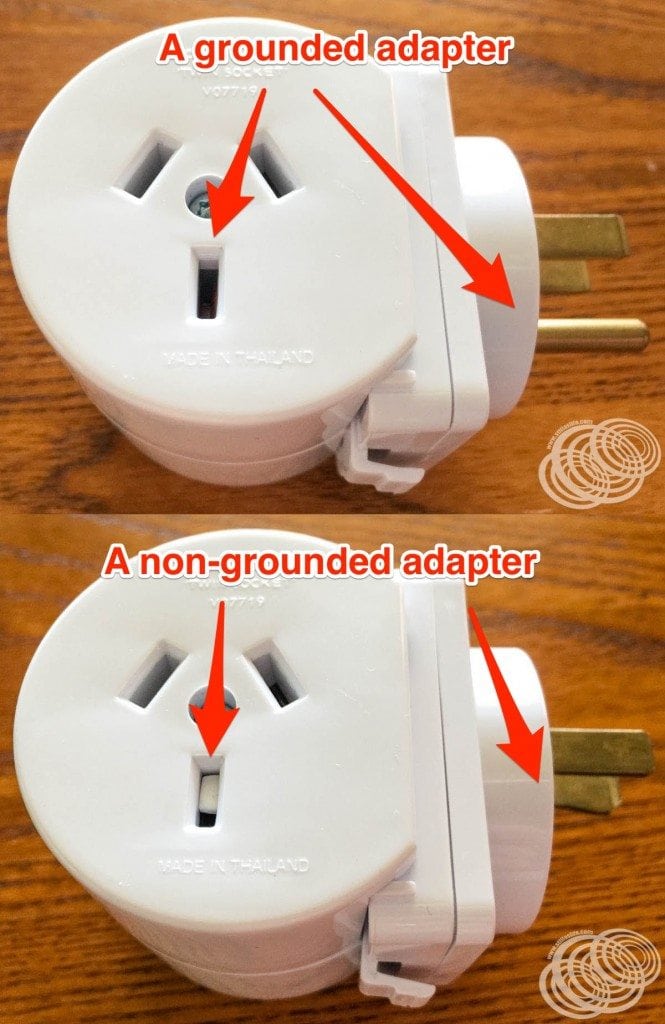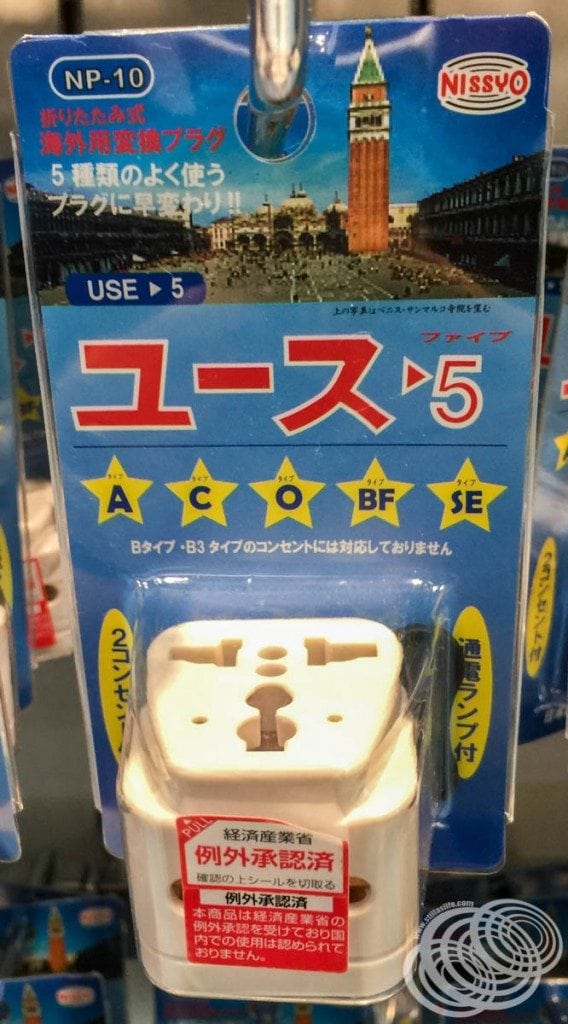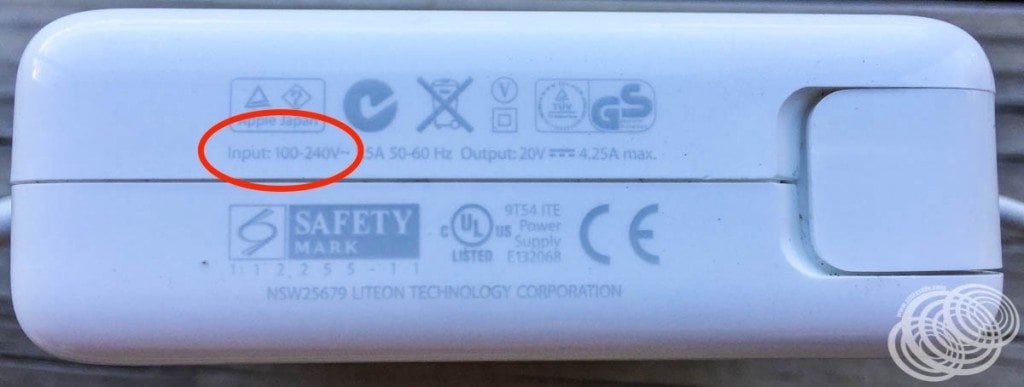This is an important question and can actually be a bit confusing because, in Australia, all our power outlets have a ground even if the appliance doesn’t use it. In Japan though, there are actually two kinds of electrical outlet: grounded and non-grounded.
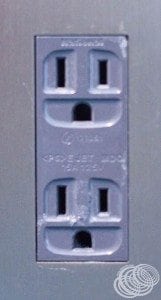
The grounded outlet can accept both grounded and non-grounded appliances. The non-grounded outlet though can only take non-grounded appliances.
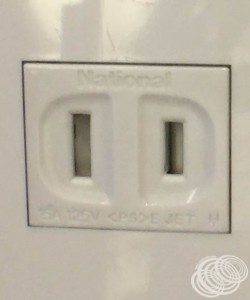
To add to the confusion, Australian appliances operate on 240v, but the Japanese power grid is 110v. So what do you do?
Travel adapters
I have a Go Worldwide Travel Double Adapter that has multiple sockets for different countries including both a grounded and non-grounded socket for Japan.
It’s important to note though, that any travel adapter sold in Australia that has been designed to meet Australian safety standards will only allow you to connect non-grounded appliances to the non-grounded outlet. The adapters are intended to prevent you from plugging a grounded appliance in. This is obviously for safety reasons. For example, on my Go Worldwide adapter, if I use the non-grounded socket, a piece of plastic physically blocks the ground port on both Australian outlets.
So, should you travel to Japan with just a grounded adapter?
Definitely not! Most hotel rooms in Japan only have non-grounded outlets. Grounded outlets are typically reserved for locations where there might be a need for them, like the hallway where a vacuum cleaner might be plugged in. Anywhere else it is common to find just non-grounded outlets.
That means you need to plan your trip, and if you can, plan to take non-grounded appliances only. Smartphones, tablets and USB-C laptops are typically all non-grounded. If your device can be charged via USB, then consider taking just non-grounded USB adapters or purchasing one when you arrive.

If you have to take a grounded appliance, then a cheap multi-socket adapter like the one below can be purchased in Japan that will accept grounded plugs into a non-grounded power outlet.
Be aware though that if your device has a ground, it may not have some of the additional protections that non-grounded devices typically have, so wherever possible it is best to use a grounded outlet or, stick to non-grounded appliances.
So what about the voltage?
Most modern appliances that are likely to travel actually are designed with multiple voltages in mind (aka universal voltage support) and can be safely used in Japan without the need for a voltage converter. To check, just find the power specifications on the device or transformer. It’s that fine print you never look at normally. It will tell you what voltage range the appliance is capable of operating within. Most laptops, tablets, phones, camera chargers and similar will probably say something like 100-240v.
If yours says something like this then you can safely use it in Japan without a voltage converter. If it doesn’t, and it only lists a narrow range around 240v then you may need a voltage converter like one of these. When your appliance doesn’t appear to operate at 110v, that doesn’t mean it won’t work anyway. For example, my Canon camera battery charger only lists 240v, yet it works fine in Japan without a converter. This is absolutely at your own risk though. I decided to try risking that charger purely because Canon camera gear primarily comes from Japan anyway. I can’t guarantee you will be so lucky.
Where can you get these adapters online?
Go Worldwide Travel double adapter
You can pick these up just about anywhere that sells travel gear in Australia, including Myers, David Jones and most bag stores. You can usually get the best prices on eBay though: Check prices on eBay
Voltage converters
These are not so readily available in stores, however, you can find many inexpensive ones on eBay here, including some that have a travel adapter built-in: 110v to 240v transformers
You can also pick them up from Amazon, including models that have a travel adapter built-in like this one: Simran SMF-100 Universal 100W Travel Voltage Converter
Disclaimer
Usage of any Australian appliances overseas with or without any of the adapters or converters listed on this website is entirely at your own risk. While your appliances should be safe if you follow this guide, I can’t guarantee with absolute certainty that they will be and I am not liable for any damage that may result from you using your appliances in Japan with or without any of the listed adapters or converters.
Any questions?
Let me know in the comments below, and for more of my articles about our travels to Japan, click here for the Japan archive.
